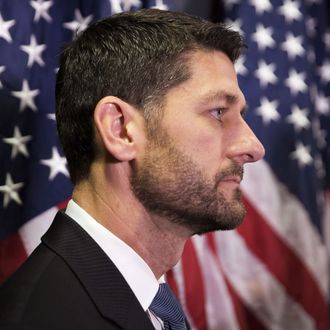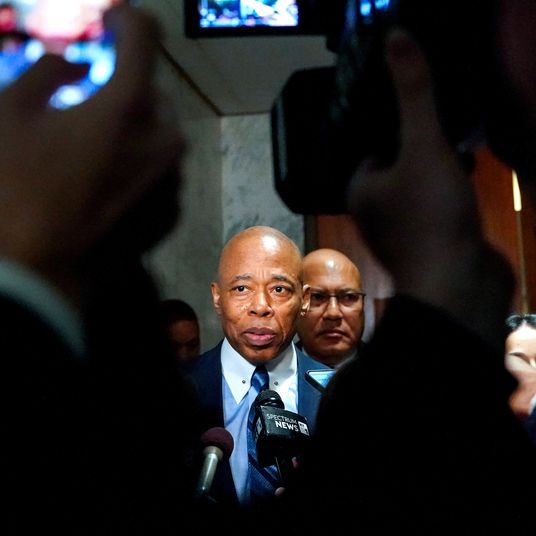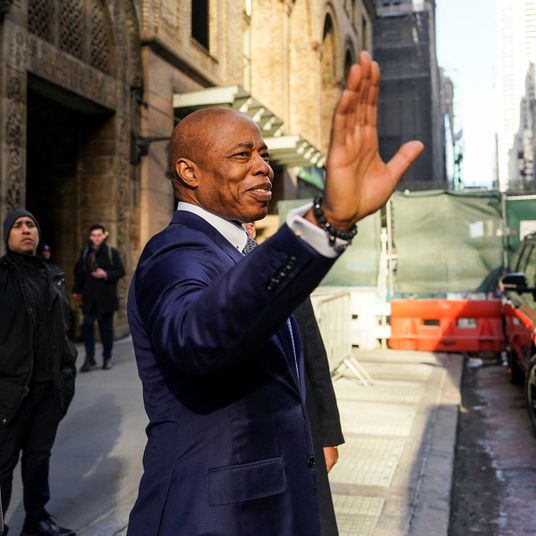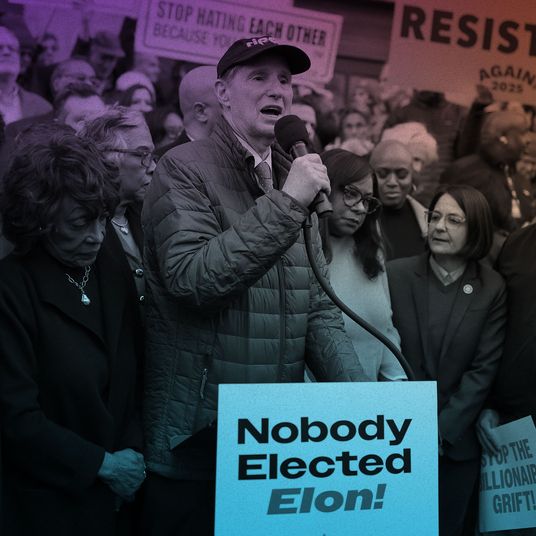
Not that long ago, House conservatives were credibly vowing to shut down the federal government over a variety of hot-button issues: “defunding” Planned Parenthood, repealing Obamacare, revoking executive orders on immigration and climate change, among others. The peak of right-wing resistance to the House leadership, itself the representative of a hated and threatened Republican Establishment, came when the House Freedom Caucus — that band of ideologues who considered the right’s traditional vehicle, the House Study Committee, too squishy — forced Speaker John Boehner into a slightly premature retirement. Since then, it’s been an Establishment rout: Boehner defused a shutdown crisis and avoided a debt default before hitting the links, and Paul Ryan was elected his successor after securing pledges of cooperation from the Freedom Caucus and others.
Then Ryan was able to let Mitch McConnell do the heavy lifting, as the Senate took most of the shutdown bait out of the appropriations process and dumped it into a budget reconciliation fated to die on the president’s desk. (The House is expected to pass this bill by and by, but the Kabuki-theater nature of the whole exercise is illustrated by the fact that it has vanished from the face of the earth after being the center of the universe just two weeks ago.) With their right flanks less exposed, Ryan and McConnell have been able to work with each other and with congressional Democrats on a big, fat omnibus bill (being called “taxibus” because it includes a vast number of tax extenders and other revenue-side goodies) with little fear of apocalyptic internal opposition.
So as he prepares these huge bills for floor action, Ryan isn’t having to figure out how to get nearly every member of his conference onboard, giving the Freedom Caucus folk enormous power as Boehner often did. No, according to The Hill, the House leadership’s big goal is to get 150 Republican votes for the deal. That’s a lower bar than the 200-plus Boehner often had to aim for when he could not rely on many Democratic votes. And then with appropriations resolved until the end of next October, GOPers can concentrate on their first love: getting reelected, and perhaps riding the coattails of a successful presidential candidate who could make that forgotten reconciliation bill the law of the land.
What Boehner, McConnell, and Ryan in turn appear to have accomplished is to convince conservative activist groups and the members of Congress who listen to them to become satisfied with an apocalypse later rather than an apocalypse now. Ryan will get the lion’s share of praise as some sort of party-unifying genius, but it’s the promise of a postelection conservative ideological feeding frenzy that’s really done the trick. If Republicans pull off the POTUS/House/Senate trifecta next year, then the kind of policies now considered “divisive” when pushed against the resistance of Senate filibusters or presidential vetoes will then be noncontroversial. If, on the other hand, the GOP loses the presidency and/or the Senate, then the party could be back to where it was when Boehner was Speaker, and Paul Ryan won’t necessarily be any better at dealing with frustrated right-wingers.






























